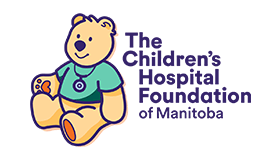Rehabilitation
Whether you visit HSC for an appointment or stay in hospital for a few days, our goal is to provide you with the skills to help you be as independent as you can be when you return to the community. Our care team provides seamless continuity of care throughout the patient’s life.
Our Rehabilitation program is made up of several inpatient and outpatient services, including the RR5 Specialty Adult Rehab Inpatient Unit, RR1 and RR2 Outpatient Physical Medicine & Rehab Clinics, and Outpatient Rehab Services.
Our team
Rehabilitation services are supported by a strong and diverse interdisciplinary team, focused on collaborative care delivery. Below is a brief description of the team:
Physiatrist: A doctor who is a rehabilitation specialist. It is likely you met this person before you were transferred to the unit. The Physiatrist is responsible for the medical part of your treatment and meets with the team frequently to discuss your progress to determine if the rehabilitation plan is on track or needs revision. Family meetings with the Physiatrist can be set up when updates are needed or requested.
Physician Assistant (PA): This individual works along with the team to provide day-to-day medical care in conjunction with the Physiatrist.
Unit Manager: This position is charged with running the daily operations of the unit, including staffing, patient relations and financial management.
Clinical Resource Nurse (CRN): This individual is a team leader who supports patients and the care team. This can include assisting with discharge planning, facilitating communication between team members, as well as providing professional support and clinical expertise.
Rehabilitation Nurse: This group provides patient care and support with tasks such as bathing, dressing, and eating. They also ensure that medical supplies are readily available at the patient’s bedside. They also teach new skills such as skin care, medication management, bowel / bladder care, and preventative healthcare strategies based on your injury or disability. As the only members of the team to care for you 24-hours a day, they help you practice the skills you have learned, and offer emotional support as appropriate.
Physiotherapist (PT): They provide education to helps patients improve their functional mobility by developing an exercise treatment plan which supports the recovery process.
Occupational Therapist (OT): They provide therapeutic activities to help patients develop and maintain the skills needed for daily living and working.
Recreation Therapist (RT): This person will meet with you shortly after admission to assess your leisure interests, abilities and will work with you to integrate your involvement in leisure interests while in hospital, and into the community once discharged. The RT will show you how to remain active in your interests despite a new injury and help build your function-ability, alongside other therapeutic services. There are daily group programs as well as opportunities one-to-one therapy, leisure education and community awareness.
Rehab Assistants: These individuals work alongside PTs and OTs to assist you with your individualized care plan.
Unit Assistants: This group is available to help you practice the skills you have learned to be as independent as possible.
Social Worker: This team provides support to patients and families with issues that occur because of illness and hospitalization. They help patients and families access services, resources and programs related to their unique needs.
Dietitian: These professionals provide advice on the nutritional needs of rehab patients. They help patients understand their needs and challenges, and design meal plans accordingly.
Inpatient care
Our specialty intensive 31-bed adult inpatient rehabilitation program is delivered by an interdisciplinary team, with the overall goal of maximizing the functional independence and quality of life of patients with the following conditions:
Spinal Cord Injury Rehabilitation (SCIR)
Patients with subacute spinal cord lesions resulting in complete and incomplete paraplegia or tetraplegia. All patients completing the inpatient SCIR program continue to be followed and supported by the SCI Outpatient Clinic (RR2), and interdisciplinary outpatient services once discharged, given their unique and often lifelong healthcare needs.
Amputee Rehabilitation
Patients with upper and/or lower limb amputations due to peripheral arterial disease, diabetes, trauma, tumors, burns and frostbite, with an emphasis on planned continuity of care from the acute stage through to active rehabilitation and long-term follow up in the community.
This program will also admit patients from home or their community for prosthetic trial/training, if needs cannot be met through available outpatient resources.
Neuromuscular/Neurolocomotor (NMSK) Injury
Patients with orthopedic injuries or neurological damage from such diseases as neuropathies, cerebral palsy, multiple sclerosis, muscular dystrophy, post COVID-19 syndrome, generalized weakness and deconditioning secondary to complex medical problems.
Referrals and admission
Physician referral is required. HSC accepts adult patients from all hospitals or facilities within Manitoba, Nunavut, and Northwestern Ontario.
Length of stay may range from weeks to months, depending on the nature of the admission and the patient’s goals.
Inpatient admissions are coordinated through a centralized intake process. For referrals within Winnipeg, care teams should follow their current Rehabilitation Referral Process. For referrals outside of Winnipeg, care teams should contact the WRHA Central Bed Access Team at [email protected].
What to expect
For more information, view the RR5 Patient Family Handbook.
Outpatient care
Information coming soon. Stay tuned!
We support informed decision-making
Our team is the best source of information and is available to speak with you upon request.
We are happy to answer your questions. It’s okay to ask:
- Ask us to explain any medical terms or words that you do not understand.
- Ask us about the risks, benefits and alternatives to any test or treatment.
- Ask us about the purpose and potential side effects of any medication.
- Ask us to assist you in communicating with your loved one.



